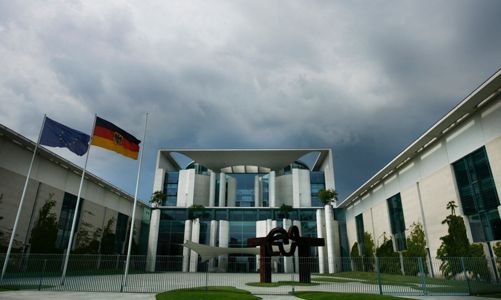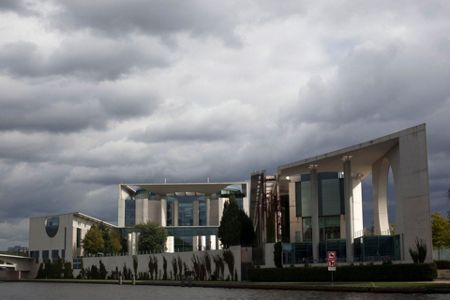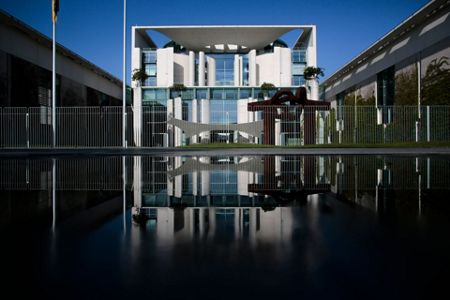BERLIN (AP) — The cost of the German chancellery's planned extension will rise to 777 million euros ($773 million), which is 177 million euros more than initially planned.
The increase in costs is related to integrating new climate protection measures, a tunnel for deliveries that hadn't been included in the initial building plan, rising prices of material due to inflation and other issues, a senior German official who spoke on condition of anonymity in line with government policy said Thursday.
The new extension of the sandstone building in downtown Berlin is needed because the chancellery's staff has grown from 400 to 750 employees, officials said. Currently, about 200 staff members work at different locations spread across the capital because there is not enough office space inside the German seat of government.
The growing costs for the extension, which will include 400 new offices in a long, U-shaped annex, a helicopter landing site and a bridge across the Spree river, have been criticized by some who say that in a time of exploding costs of living for ordinary citizens, the government should not invest millions of taxpayers' money into the building, but Chancellor Olaf Scholz defended the extension.
“It’s a long planned continuation of the construction of the current chancellery for a place for those who work here and who are now scattered among many buildings," he said earlier this week on ZDF public television. "And I believe that such a long prepared planning, which is now very far advanced, must also be completed.”
The original chancellery was built from 1997-2001, following Germany's reunification in 1990 and the move of many parts of the government from Bonn to Berlin.
Berliners soon dubbed the light grey building “the federal washing machine,” or Bundeswaschmaschine in German, because its round glass façade faintly resembles the front of a gigantic washing machine.
The construction of the extension, which will then become part of the so-called chancellery campus which also includes a park, is planned for 2028.
It's not the first major building project in Germany that became much more expensive than initially planned.
Berlin's new airport, which opened in 2020 with a delay of nine years, cost some 6 billion euros — about three times what was originally planned. Hamburg's landmark concert hall, the Elbphilharmonie, climbed from an initially planned 77 million euros to 789 million euros. It opened in 2016 — six years later than planned.
Copyright 2022 The Associated Press. All rights reserved. This material may not be published, broadcast, rewritten or redistributed without permission.






